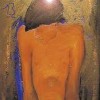First published on L.S. Media. 31st July 2012.
L.S. Media Rating *****
Dave Rowntree, Graham Coxon, Alex James and Damon Albarn had been playing together for the best part of a decade and for the sixth studio album, the change of direction that had seeped and bled through on Blur had now become the norm for the band. The spectre of Brit-Pop was fully behind them and 13 showed that new level of maturity had come to fruition.
The new album was more than mature, it broke hearts, it stood above the gunfire of acid wit from detractors and revelled in the praise from those that mattered to the band. It is an emotional outpouring of musical grief, of the acknowledgement that as George Harrison said, “All things must pass.”
Even though the sleeve notes suggest every member of the band enjoyed making the album, the rift between Coxon and Albarn was becoming a yawning chasm. In the mess of relationships that were floundering, it is perhaps surprising that both Alex James and Dave Rowntree hung around to witness it. Lesser musicians would have hung up their instruments and walked away, other bands have disintegrated over less. As Alex James suggests, “Graham was still unhappy. But 13 was Damon’s turn to be unhappy as well, and that was when it got too much, I guess.”
The real surprise on the album, in fact two, was the emergence of Graham Coxon as a spirited song writer and his wonderful song of Coffee and T.V. and the gentle almost angelic writing of Damon Albarn for the song Tender. Two monumental songs born out of frustration and deep emotional neglect that almost transcend everything the band did before-hand. It isn’t too far to suggest that had the band been able to deal with the loss and drifting apart between the two main songwriters, the next ten years may have been a different story.
Coffee and T.V. is a piece of excellent song-writing, the use of deep emotional ties and the image of leaving a group of people was perhaps never more poignant as it was at this moment for the band. Even the video that accompanied it was unusually deep for the band, it played on emotional strings that had not been felt before from the four men. The lasting image of a walking milk carton carrying the portrait of Graham Coxon as a younger man who is missing from his family is one that may be amusing but ultimately is one where an ending can finally be seen. Also notably for the band, Graham gets to sing the verses for the songs, wrestling subconscious control from Damon Albarn for a moment as a leading figure of the band.
Tender is its direct and equal opposite. Whilst still dealing with the loss of love, the song notably was written by both men and has been a source of much interest over the years. After Graham’s departure and hiatus from the band, Damon Albarn continued to remind people that it was written by both men and urged crowds to sing Graham’s parts at various gigs. It can be no wonder that these two songs are so highly regarded as part of the collection of songs that the band wrote in the last 21 years. Tender especially is a collaborative high point for the band and it is with deep regret that anyone listening to it now for the first time will be heartbroken by its uncomplicated delivery and subtle yet refreshing refrain.
The major addition to the Blur stable was the inclusion of William Orbit as producer, the highly rated music maker worked tirelessly getting the album to sound as good as it did and in effect could be said to add another couple of years to the band’s first shelf life.
Stronger than Blur, 13 allies itself in a peculiar way with The Great Escape as the two best albums by the band, although completely and utterly different in their style and edge, they nonetheless are cool for the freedom they allowed the band to change the way they were perceived.
Ian D. Hall

